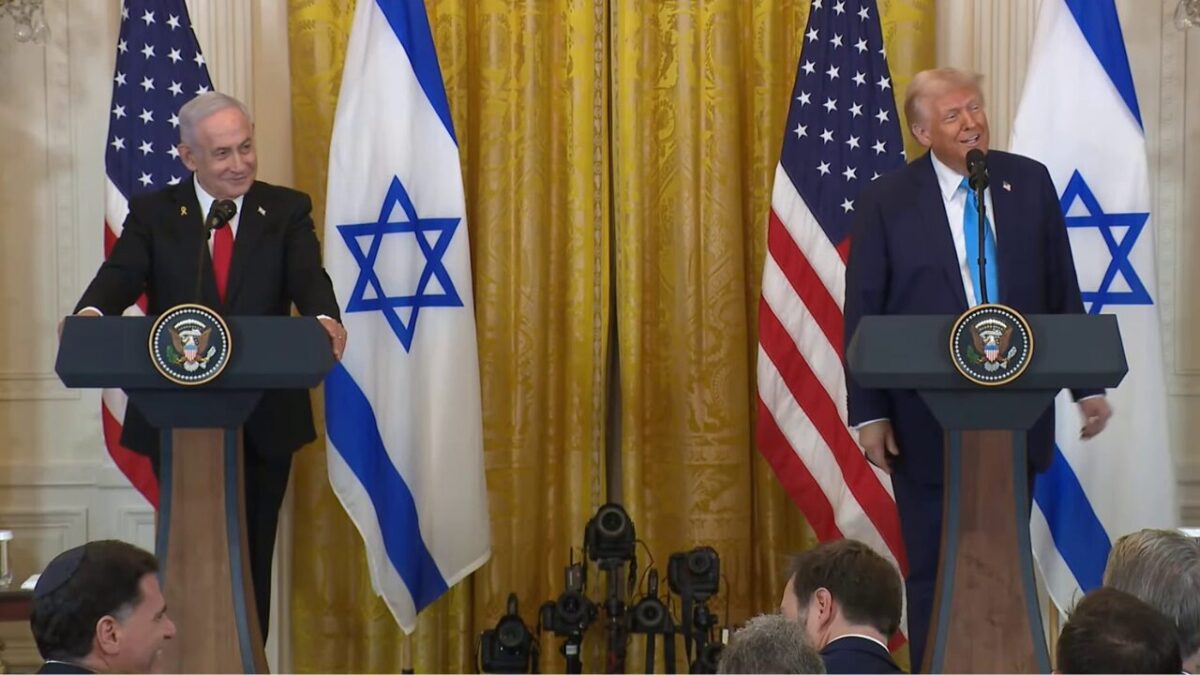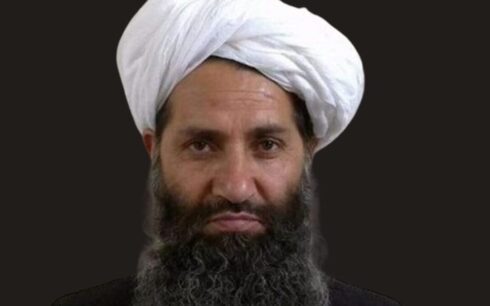During a joint press conference with Israeli Prime Minister Benjamin Netanyahu on Tuesday, President Donald Trump declined to take a clear stance on Afghanistan when questioned by an Afghan journalist about his administration’s potential policy on the country and the recognition of the Taliban.
Nazira Azim Karimi, an Afghan journalist, asked Trump if he had a plan to address Afghanistan’s situation, but the president responded vaguely.
“I have a little hard time understanding you. Where are you from?” Trump said. “Actually, it’s a beautiful voice and a beautiful accent. The only problem is I can’t understand a word you’re saying. But I just say this: Good luck. Live in peace. Go ahead, please.”
Trump’s remarks, which made no direct reference to Afghanistan, have sparked varied reactions from political analysts.
The Trump administration has not yet outlined a formal policy on Afghanistan. However, Trump has stated that any financial assistance from the United States would be contingent on the return of U.S. military equipment left behind during the withdrawal.
According to a report from the U.S. Special Inspector General for Afghanistan Reconstruction (SIGAR), an estimated $7.12 billion worth of American military equipment remained in Afghanistan following the U.S. pullout. This included:
A recent report by CBS News, citing the U.S. Department of Defense, stated that approximately 78 aircraft, 40,000 military vehicles, and hundreds of thousands of weapons are now in Taliban possession.
After weeks of silence regarding Trump’s comments, Taliban spokesperson Zabihullah Mujahid addressed the issue in a social media discussion, asserting that the weapons and equipment left behind were now firmly under Taliban control.
“These weapons will be used to defend our freedom, independence, and Islamic system. No one can take them from us,” Mujahid said. “If someone wants them back, we will negotiate—but on our terms.”
Despite the Taliban’s claims that all military equipment is securely stored in government-controlled depots, former Afghan military officials have warned that as much as 30% of the U.S.-supplied weaponry has fallen into the hands of other groups, including al-Qaeda.
As Trump remains noncommittal on Afghanistan, analysts suggest that his silence reflects uncertainty over how his potential administration would approach relations with the Taliban and whether it would engage with the group diplomatically or adopt a more confrontational stance.
“President Trump’s message was brief and to the point: the people of Afghanistan should resolve their political and social issues among themselves and not wait for any foreign country to intervene,” political analyst Torek Farhadi said.
For now, the future of U.S. policy on Afghanistan remains unclear—just as Trump’s remarks left many questions unanswered.





